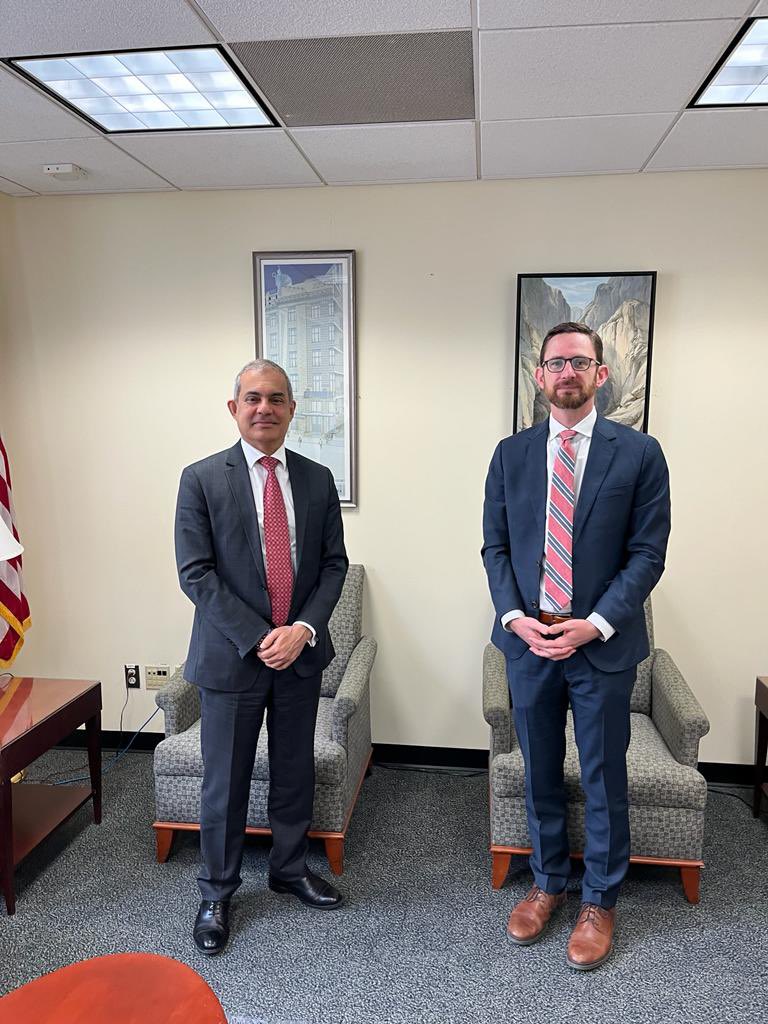The statement said that Norway remains committed to supporting the humanitarian response in Afghanistan….reports Asian Lite News
The UNAMA (United Nations Assistance Mission in Afghanistan) Deputy Special Representative for Afghanistan, Resident Coordinator, and Humanitarian Coordinator, Indrika Ratwatte, met with US Special Representative for Afghanistan, Thomas West to discuss the humanitarian and economic conditions in Afghanistan as well as help for Afghan refugees, as reported by TOLOnews.
West, in a post on X, pledged a continued association with the UNAMA in order to address these dire issues in Afghanistan.
“Discussed support for Afghan refugees and the humanitarian and economic situation in Afghanistan. Look forward to continuing our strong partnership with UNAMA on these challenges,” he wrote.
Meanwhile, the Norwegian Ministry of Foreign Affairs said in a statement that it had set aside close to USD 7 million to help Afghans and those who had returned from Pakistan.
“Norway increases its support for Afghanistan with USD 3.8 million (NOK 40 million) to the United Nations High Commissioner for Refugees (UNHCR) and USD 2.9 million (NOK 30 million) to the UN World Food Program (WFP), due to the large influx of Afghans repatriated from Pakistan,” the statement read, according to TOLOnews.
The statement said that Norway remains committed to supporting the humanitarian response in Afghanistan.
Furthermore, according to the Ministry of Economy, immigrants deported from other nations, particularly Pakistan, have so far received the support they need from the Islamic Emirate in the areas of food, housing, and sanitation, TOLOnews reported.
“The Islamic Emirate has a plan for immigrants in the fields of health, shelter and education, and it has implanted its major parts,” said Abdul Latif Nazari, Deputy of the Ministry of Economy.
Earlier, nine international non-governmental organizations expressed their concerns regarding the situation of immigrants returning from Pakistan to Afghanistan.
Afghanistan is currently grappling with a serious humanitarian crisis as according to international assessments, the country now has the highest number of people in emergency food insecurity in the world, with more than 23 million in need of assistance and approximately 95 per cent of the population having insufficient food consumption.
Moreover, the situation of human rights in Afghanistan has worsened since the collapse of the Afghan government and the Taliban’s return to power in August last year.
Additionally, the Ukraine crisis has had a massive impact on the rise in food costs and how it was out of reach for many Afghans.
Although the fighting in the country has ended, serious human rights violations continue unabated, especially against women and minorities.
Women and girls in Afghanistan are facing a human rights crisis, deprived of the fundamental rights to non-discrimination, education, work, public participation and health, reported Khaama Press. (ANI)
ALSO READ: ‘India Supports Free Movement of Commercial Shipping’

